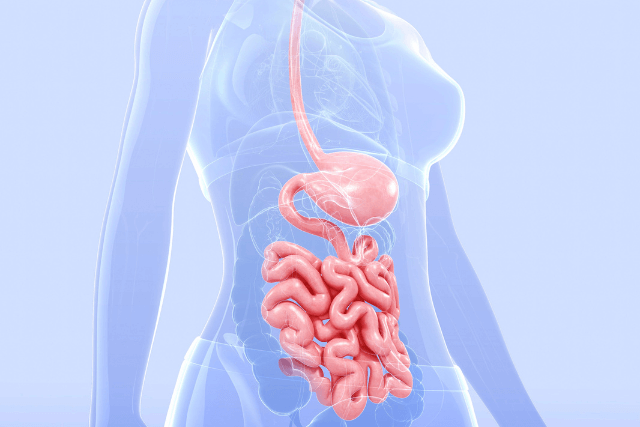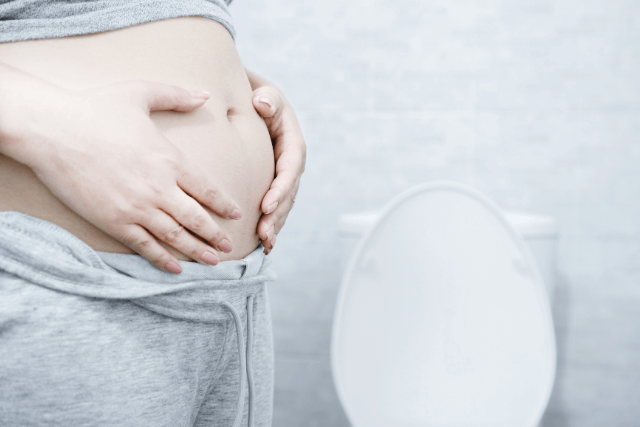Good digestive health is crucial for overall well-being. It influences everything from nutrient absorption to energy levels and even mood. But one of the most overlooked factors in maintaining digestive health is hydration. Water plays a vital role in the entire digestive process, yet many people don’t realize just how important it is. In this blog, we’ll explore why hydration for digestive health is essential, how it impacts digestion, and tips to ensure you’re drinking enough water for optimal digestive function.
The Connection Between Hydration and Digestion
Our body is about 60% water, and every part needs water to work properly, including the digestive system. Digestion is the process of breaking down food, taking in nutrients, and getting rid of waste. Water helps at every step of this process, making it important for everything to work well.
When you consume food, your body uses water to break it down in the stomach and intestines. Water helps dissolve fats and soluble fiber, which allows these substances to pass through the intestines more easily. Without enough water, the digestive process becomes sluggish, and the body struggles to break down food and absorb nutrients efficiently. This is why maintaining proper hydration is one of the easiest and most effective ways to support your digestive health.

Digestive Enzymes
Digestive enzymes are proteins that help break down food in the stomach and intestines. These enzymes rely on water to function properly. When you’re dehydrated, your body produces fewer enzymes, making it harder for the digestive system to break down food. As a result, you may experience symptoms such as bloating, indigestion, and constipation. Hydration helps ensure that digestive enzymes are functioning optimally, enabling your digestive system to work more efficiently.
How Hydration Helps with Nutrient Absorption
Another key aspect of digestion is nutrient absorption. Once food is broken down in the stomach, the nutrients need to be absorbed into the bloodstream through the walls of the intestines. Water plays a critical role in this process. It helps dissolve vitamins and minerals, making them easier for the body to absorb. Without adequate hydration, your body may struggle to absorb essential nutrients, leading to deficiencies that can affect your overall health.
For example, water helps with the absorption of vitamins like B12, C, and other water-soluble nutrients. Without water, these nutrients may not be properly absorbed, leading to fatigue, weakness, and a weakened immune system. By drinking enough water, you can ensure that your digestive system functions at its best, maximizing the absorption of vital nutrients.
Constipation Relief
Dehydration is one of the leading causes of constipation. When you’re not drinking enough water, the body pulls water from the stool in an attempt to maintain hydration levels, leading to hard, dry stools that are difficult to pass. Hydration helps soften the stool, making it easier for the body to eliminate waste. If you’re dealing with constipation, increasing your water intake is one of the most effective ways to find relief. Drinking water helps prevent constipation by keeping things moving smoothly through your digestive system.
The Role of Hydration in Detoxification
Hydration is also crucial for helping the body remove toxins. The body uses water to flush out toxins and waste products through the kidneys and urinary system. When you’re hydrated, the kidneys can filter out harmful substances more efficiently. Water also helps the liver process and eliminate toxins, ensuring that your digestive system remains free from harmful buildup.
Without enough water, the body becomes less efficient at detoxifying. Toxins can accumulate in the digestive system, leading to symptoms such as bloating, fatigue, and poor digestion. Drinking water helps keep your digestive system functioning properly, allowing it to detoxify and remove waste effectively.
Gut Health
Hydration is closely tied to gut health. The gut is home to trillions of bacteria that help with digestion and overall health. These beneficial bacteria thrive in a hydrated environment. Water supports the growth and function of gut bacteria, helping to maintain a healthy balance in the digestive system. Inadequate hydration, on the other hand, can disrupt the gut microbiome, leading to issues such as bloating, gas, and digestive discomfort.
By maintaining proper hydration, you can support the health of your gut microbiome and improve your digestive health. Drinking water regularly helps promote a healthy gut environment, ensuring that your digestive system works efficiently and that you feel your best.
How Much Water Should You Drink for Digestive Health?
Now that we understand the importance of hydration for digestive health, the next question is: how much water should you drink? While there is no one-size-fits-all answer, the general recommendation is to drink at least eight 8-ounce glasses of water per day, which equals about 2 liters or half a gallon. However, individual needs may vary based on factors such as age, activity level, climate, and overall health.
If you’re experiencing digestive issues such as constipation or bloating, you may need to drink more water to support proper digestion. Pay attention to your body’s signals and drink when you’re thirsty, but also make a habit of drinking water throughout the day to stay hydrated consistently.
Hydration and Bloating
Bloating is a common digestive complaint that can result from dehydration. When you’re dehydrated, your body tends to retain water, leading to feelings of fullness and discomfort. Drinking more water helps prevent bloating by keeping the digestive system functioning properly and reducing water retention. If you’re dealing with bloating, increasing your water intake can help alleviate the discomfort and promote a flatter, more comfortable stomach.

Hydration and Its Impact on Digestive Disorders
Dehydration can exacerbate certain digestive disorders, such as Irritable Bowel Syndrome (IBS) and acid reflux. For individuals with IBS, staying hydrated is essential for managing symptoms such as constipation and diarrhea. Dehydration often triggers or worsens acid reflux, as it prevents the stomach from having enough fluid to produce adequate amounts of digestive acid. Hydration can help reduce the severity of symptoms and provide relief for those suffering from these conditions.
In addition to drinking water, it may be helpful to consume other hydrating liquids such as herbal teas, soups, and broths. These fluids not only hydrate the body but also provide additional nutrients that can support digestion.
Tips for Staying Hydrated
While the importance of hydration is clear, many people struggle to drink enough water throughout the day. Here are some tips to help you stay on track:
Carry a Water Bottle: Keep a reusable water bottle with you at all times to remind yourself to drink water regularly. This can make it easier to stay hydrated, whether you’re at home, work, or on the go.
Drink Water with Meals: Try drinking water with every meal to help your stomach process food and stay hydrated. You can also drink a glass of water before meals to help you feel less hungry and keep your stomach working well.
Add Flavor: If you find it difficult to drink plain water, try adding a splash of lemon, cucumber, or mint for a refreshing twist. This can make drinking water more enjoyable while still providing the hydration your body needs.
Track Your Intake: Use an app or journal to track how much water you’re drinking each day. This can help you stay on top of your hydration goals and ensure you’re getting enough water for optimal digestive health.

Hydration and Digestive Health: A Key Connection to Hemorrhoid Relief
In addition to its many benefits for overall digestion, hydration plays a crucial role in preventing and managing common digestive issues that can lead to more serious conditions. For instance, dehydration is a leading cause of constipation, which in turn can result in straining during bowel movements. This chronic straining often contributes to the development of hemorrhoids. Similarly, conditions like Irritable Bowel Syndrome (IBS) can cause both diarrhea and constipation, further exacerbating the risk of hemorrhoids.
When digestive problems like constipation and straining lead to hemorrhoids, effective treatment becomes essential. At IBI Laser Theraphy, we offer Laser Hemorrhoid Procedure (LHP®) to provide lasting relief. This minimally invasive procedure addresses the root causes of hemorrhoids and offers a quick recovery, helping you maintain digestive health while alleviating discomfort.
If you’re experiencing symptoms of hemorrhoids, such as discomfort or swelling, we encourage you to schedule a consultation with our experts to discuss personalized treatment options that best suit your needs.



